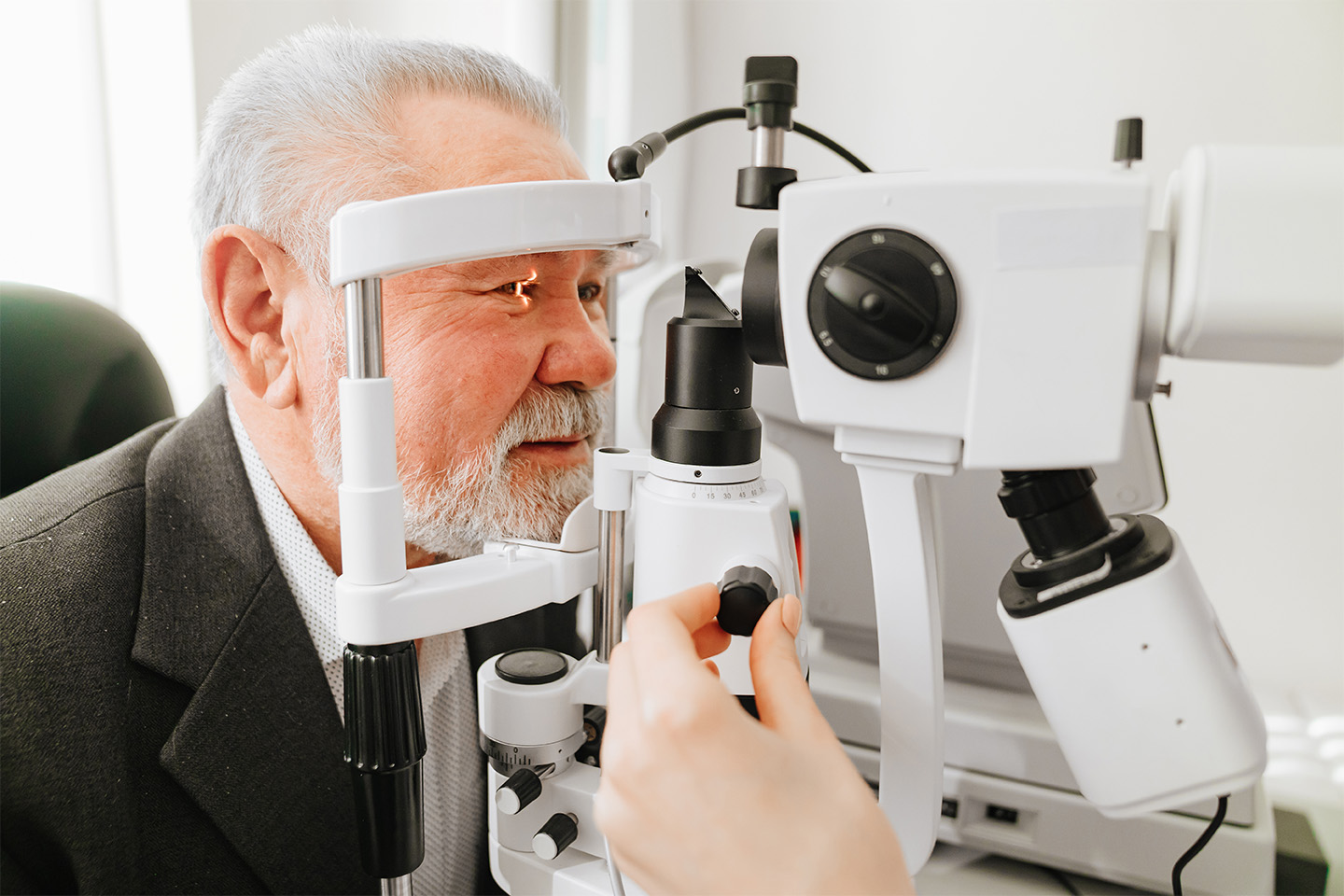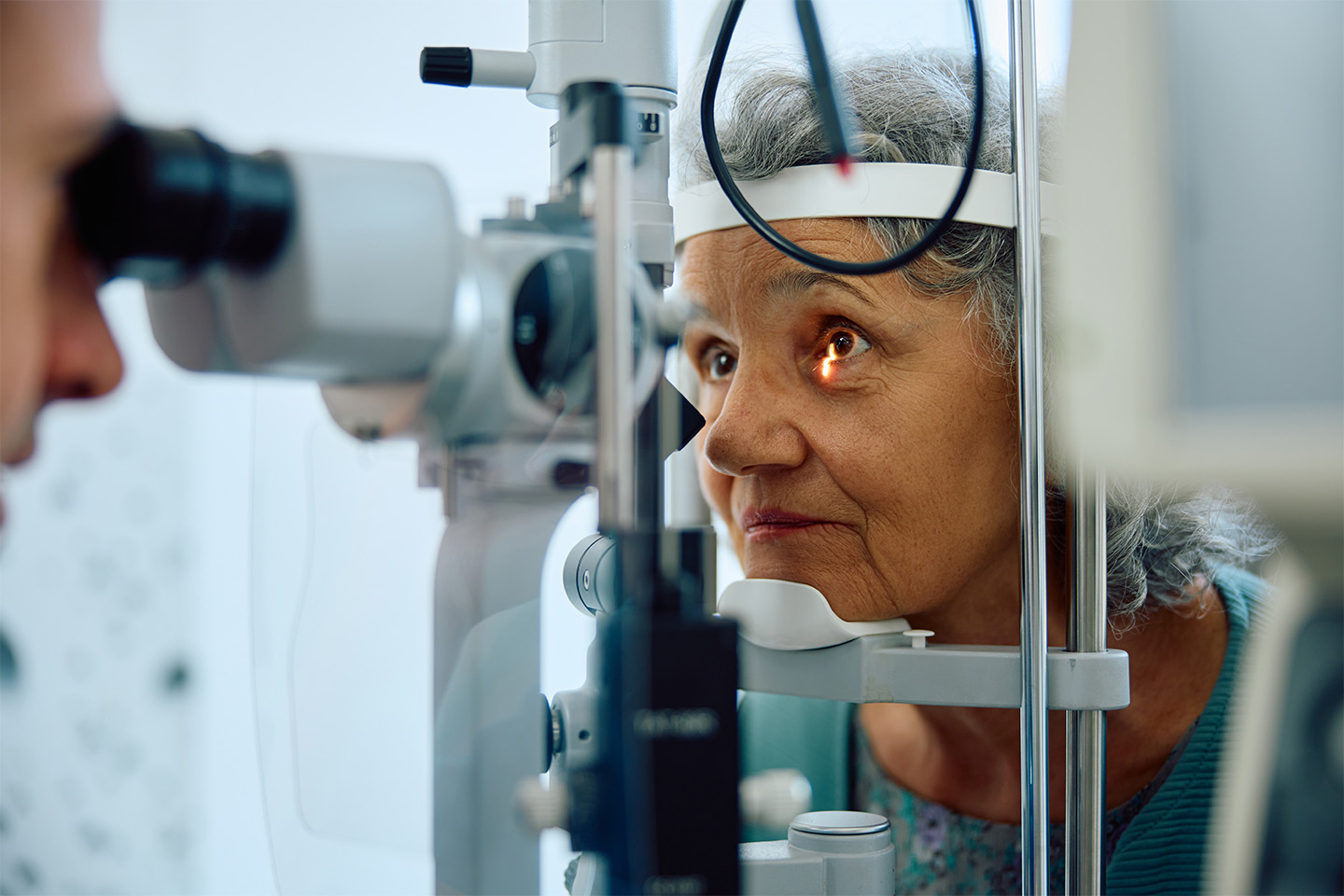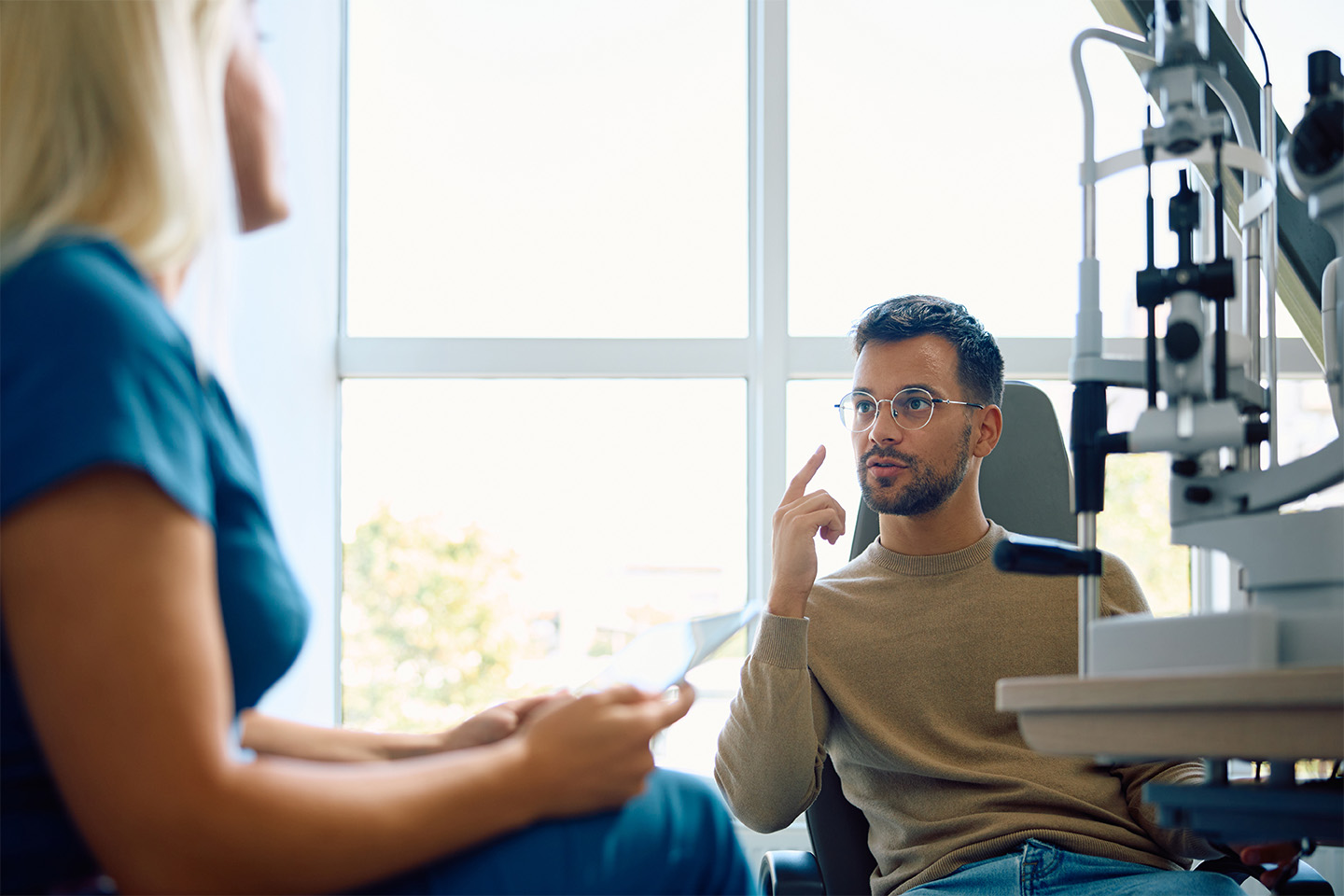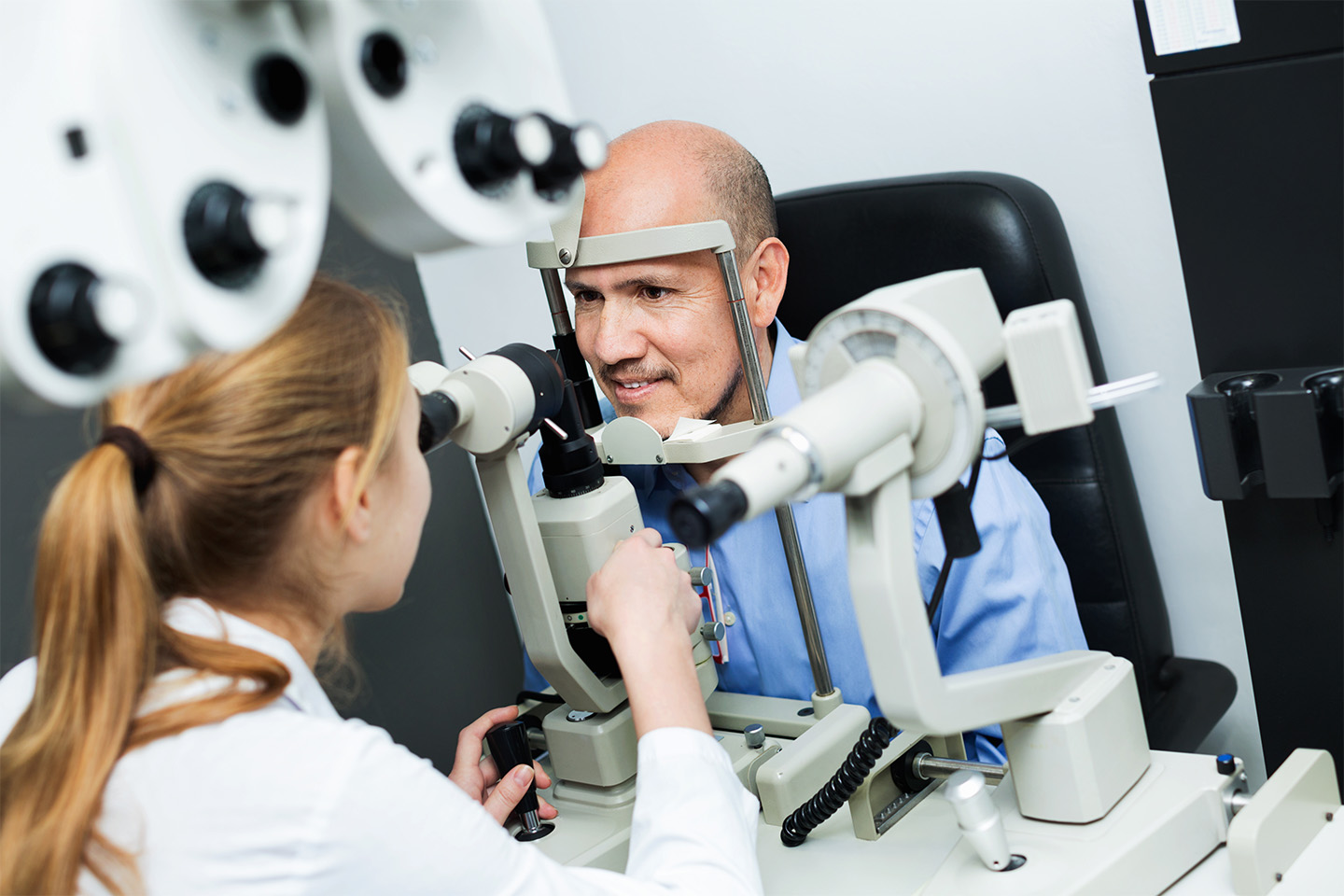Tips to Protect Your Eyes as You Get Older

In honor of Healthy Aging Month, here are some tips on how to keep your vision sharp as you get older.
According to the U.S. Census projections, the number of Americans 65 and over is expected to grow from 52 million in 2018 to 95 million by 2060, which will make the 65-and-up crowd nearly 23 percent of the total population.
For decades, studies have shown that Americans consistently rank blindness as one of their biggest health concerns. As medical breakthroughs allow us to better understand the intricacies of the eye, more attention is being given to how to treat conditions that we’ve commonly accepted as part of the aging process.
So, considering September is Healthy Aging Month, here is an overview of some of the most common age-related vision issues and what you can do to prevent them.
Common Age-related Vision Problems
There are a number of eye conditions that become more common as we age. Here are four that ophthalmologists see most frequently:
Cataracts
Over time, the eye’s lens can thicken and become opaque, cloudy, or discolored. This often leads to symptoms like seeing halos around light sources, difficulty driving at night, only seeing muted colors, or a need for more light when reading or watching television.
There’s currently no medical treatment to stop a cataract once it begins to form. However, the good news is that cataract surgery — which replaces the cloudy lens with a new, synthetic one that can actually reduce or eliminate your need for glasses — is one of the safest and most common procedures.
While cataracts tend to begin forming around the age of 50, they often develop gradually and may not require surgery for years, if not decades. Making sure you’re getting enough Vitamin C can help prevent cataracts, as does wearing UV-blocking sunglasses and wide-brimmed hats when out in the sun.
Glaucoma
Glaucoma occurs when the eye’s normal fluid pressure isn’t able to drain properly, causing fluid to collect in the eye. This can seriously damage the optic nerve and cause permanent blindness if left untreated.
Glaucoma, which is sometimes called the “silent disease,” often doesn’t present noticeable symptoms until after it has caused irreparable damage to the optic nerve. For this reason, it’s incredibly important to have regular eye exams to ensure that the condition, if caught early, can be treated. In many cases, eye pressure can be regulated with special eye drops, but there are surgical procedures to help mitigate the disease’s effects, as well.
Macular Degeneration
The most common source of serious vision loss for people over the age of 50, macular degeneration is caused by a thinning of the macula, which sits at the center of the retina. While macular degeneration rarely results in complete blindness, it does affect the eye’s central vision, which is necessary for everyday tasks like driving, reading, or viewing facial expressions.
There are two kinds of macular degeneration, dry and wet. Dry is most common and involves the deterioration of the macula. Wet, on the other hand, involves the abnormal growth of blood vessels beneath the retina and can lead to more severe vision loss.
There are currently no medical treatments for dry macular degeneration, but there are some ongoing treatments available for mitigating the effects of wet macular degeneration. Avoiding exposure to sunlight and eating lots of fruits and dark leafy greens can be helpful in limiting the condition’s spread.
Presbyopia
As we age, the lenses of our eyes become less flexible, which leads to difficulty focusing at close range. Presbyopia, a type of age-related farsightedness, unfortunately affects nearly everyone — which is why reading glasses, bifocals, and progressive lenses are so common among people over 40.
Tips for Keeping Your Eyes Healthy
According to ophthalmologists, doing your best to generally maintain your health can help decrease the odds of developing age-related eye conditions. Ways you can do this include:
- Wearing UV-blocking sunglasses and wide-brimmed hats when outside
- Quitting smoking (smoking not only affects the lungs, but also the heart and the eyes)
- Eating a low-fat diet rich in foods that support eye health, such as leafy greens, and foods that are high in omega-3 fatty acids, like salmon and tuna
- Keeping physically active and trying to maintain a healthy weight
- Scheduling regular eye exams
Other health issues like diabetes and high blood pressure can also affect the health of your eyes, so it’s important to discuss how to best monitor and regulate these conditions with your eye doctor.
Visit our website for more information on protecting your vision or to schedule an appointment with one of our eye care specialists.
Request An Appointment.
Give us a phone call at (970) 256-0400 Monday – Friday, 8am-5pm to schedule a consultation.










 (970) 256-0400
(970) 256-0400